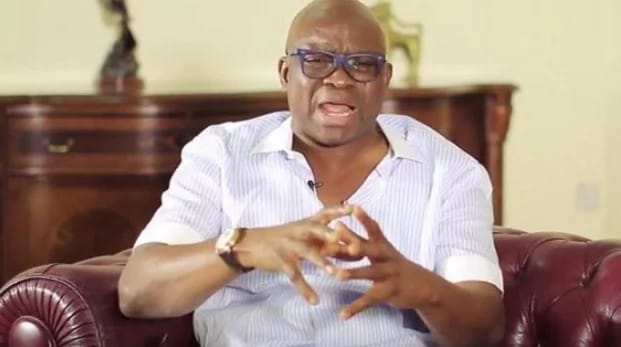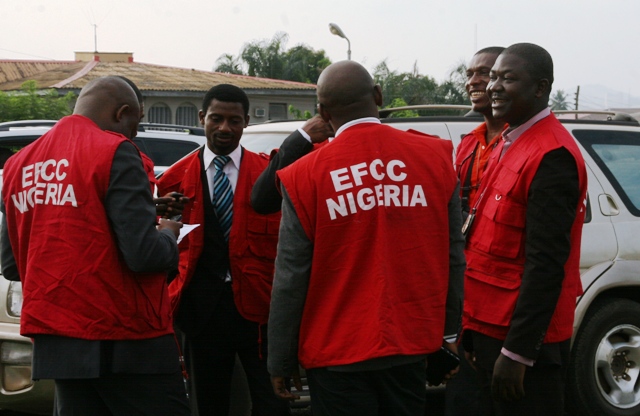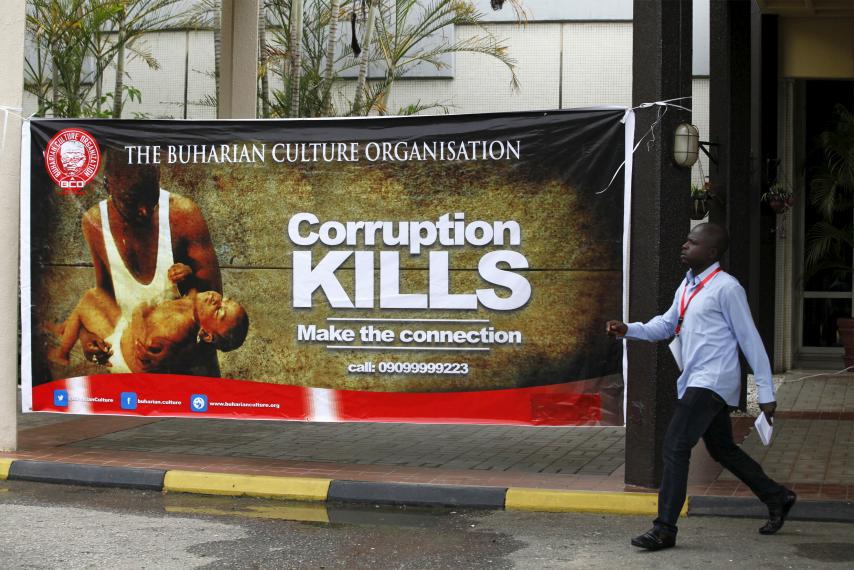
International Guardian, HOUSTON – TX- Governor Ayodele Fayose of Ekiti State, through Lere Olayinka, his Special Adviser on Public Communications and New Media has confirmed that that he had an account balance of N300m in a fixed deposit before he was sworn into office; and had lawfully declared it in his Asset Declaration Form.
The Governor’s confirmation was made as a response to a controversial allegation made by the Economic and Financial Crimes Commission, (EFCC) about the Governor’s Zenith Bank account, claiming that he deposited the balance in April 2015, six months after he had become governor.
Governor Fayose had earlier in June accused the Buhari-led Federal government of planning to use the EFCC to destabilize Ekiti state with the ultimate aim of illegally impeaching him. He Addressed a press conference claiming that the part of the plot was to arrest his Chief of Staff and four members of the state House of Assembly, detain them indefinitely and force them to start an impeachment process against him.
The Punch, a Nigerian news outlet, published Olayinka tweets in a news report, quoting the Governor as saying, “I declared in my Assets Declaration Form that I had N300m in my fixed deposit account in Zenith Bank.” According to the Punch, the Governor maintained that he had never received campaign funds from the Office of the National Security Adviser in 2014 as previously alleged by the EFCC, stating, “I did not get money from the NSA Office to fund my election. It is just a conspiracy; it will fail like that of 2006.”
The EFCC had in June froze Fayose’s Zenith Bank account, alleging illegal transfers and deals with an associate, Abiodun Agbele. The commission had also accused Fayose of personally moving the said N300m from that deal to the Zenith Bank in a fixed deposit account in April 2015. Fayose, however denied the allegation, accusing President Muhammadu Buhari of using a corrupt agency to stamp out corruption in Nigeria, and urging him to start the corruption fight with his party and immediate aides.
While the EFCC would not comment on the matter, Fayose said that any property that may be linked to him or his establishment was legitimately procured; duly stated in his Assets Declaration Form, and that sources of funds for such properties were not illicit.
Governor Fayose had earlier in June accused the Buhari-led Federal government of planning to use the EFCC to destabilize Ekiti state with the ultimate aim of illegally impeaching him. He Addressed a press conference claiming that the part of the plot was to arrest his Chief of Staff and four members of the state House of Assembly, detain them indefinitely and force them to start an impeachment process against him.


